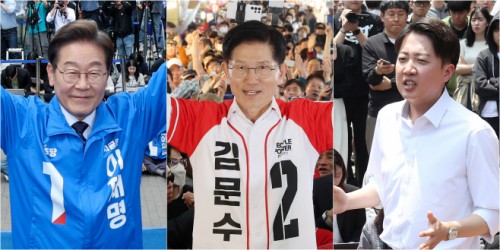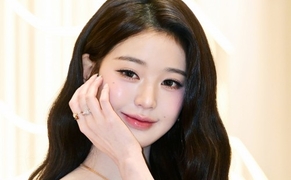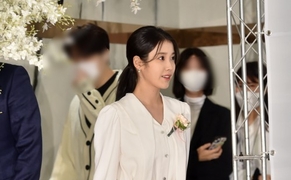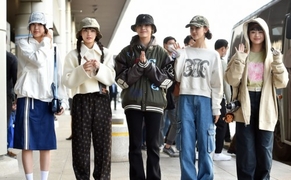 |
| On May 13, the second day of official campaigning for the 21st presidential election, Democratic Party candidate Lee Jae-myung (left) holds a street rally on Dongseong-ro in Daegu, People Power Party candidate Kim Moon-soo campaigns at Sinjeong Market in Nam-gu, Ulsan, and New Reform Party candidate Lee Jun-seok addresses students at Kyungpook National University in Daegu. / Source: Yonhap News |
On May 13, South Korea’s foreign ministry announced that it has begun laying the groundwork for summit diplomacy in anticipation of the launch of a new government following the June 3 presidential election.
“We’re making basic preparations so that summit diplomacy can resume immediately after the new administration takes office,” a ministry official told reporters at the Government Complex in Seoul.
The official added, “We are ensuring that diplomatic activities continue smoothly in any scenario, including matters of content and protocol.”
If the next president is invited to the Group of Seven (G7) summit in Canada from June 15 to 17, or the NATO summit in the Netherlands on June 24 and 25, they are expected to make their first multilateral diplomatic debut at one of those events.
Should the South Korean president be invited to the G7 summit, there is also a strong likelihood of a meeting with U.S. President Donald Trump.
Though South Korea is not a G7 member, the host country often invites non-member states and international organizations to participate in extended sessions, raising the possibility of Korea’s inclusion this year.
Meanwhile, the official said preparations are also underway for the Asia-Pacific Economic Cooperation (APEC) summit, scheduled for late October in Gyeongju, North Gyeongsang Province.
“Infrastructure development is in progress, including 12 lodging facilities and 35 presidential suites within a 7-kilometer radius of the summit venue,” the official noted. “We’ve secured around 10,000 accommodations in Gyeongju and surrounding cities.”
Most Read
-
1
-
2
-
3
-
4
-
5
-
6
-
7





















